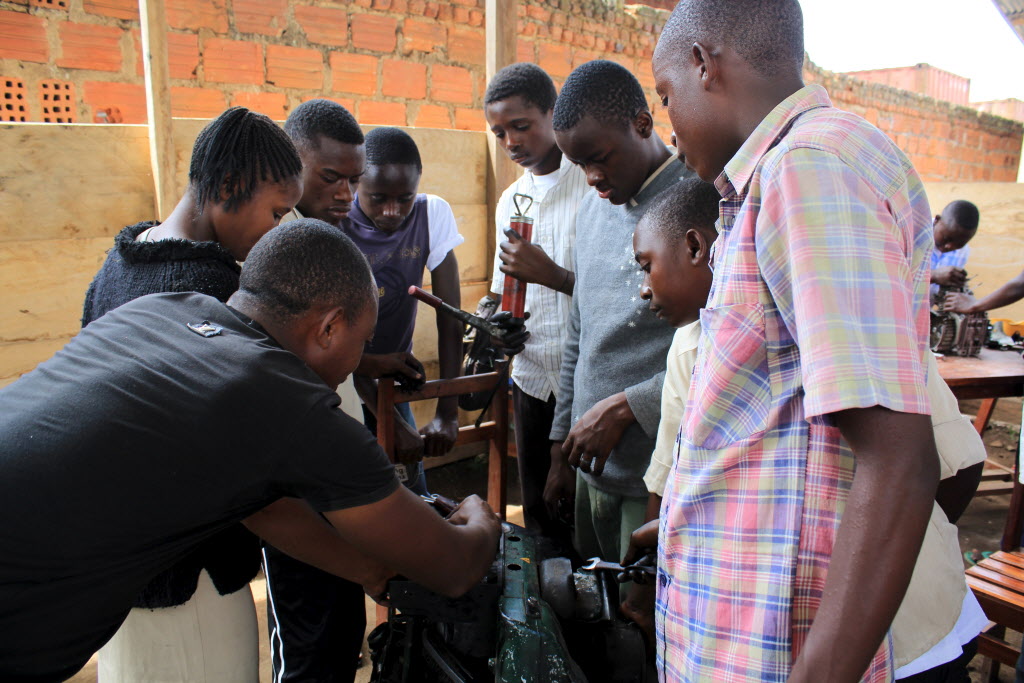
Washington, DC (September 30, 2014) — Today the Obama administration released the list of countries that will lose military assistance for the coming year because of their use of child soldiers. However, through the use of National Security Waivers, military aid to continue to flow to some countries actively recruiting or using children in their armed forces.
The annual release of this list has been a source of controversy over the past four years as the administration had taken to using the waivers, which many advocates consider to be skirting a 2008 law meant to curb this kind of military support.
“This is definitely a mixed bag,” said Jesse Eaves, senior policy advisor for child protection for World Vision. “On one hand, it’s good to see some countries are being held responsible and are responding to US pressure. On the other, the administration continues to shelter its friends. It’s our belief that U.S. taxpayer money should never go to use children as weapons of war.”
Passed in 2008, the Child Soldier Prevention Act (CSPA, PDF) is meant to curtail U.S. military assistance to governments that recruit and use children into their armed forces or government-supported militias. Thousands of World Vision supporters advocated for the passage of this bill.
However, through a loophole in the law, the Obama administration failed to implement the CSPA as Congress intended, opting to issue waivers to countries rather than hold them accountable.
In June, the U.S. State Department found that nine countries were actively recruiting or using children in their national militaries. The nine countries are Central African Republic, Democratic Republic of Congo, Myanmar, Rwanda, South Sudan, Sudan, Syria, Somalia and Yemen.
Prior to the release of the June list, the administration signaled its intention to provide military assistance for seven countries: Central African Republic (CAR), Democratic Republic of Congo (DRC), Myanmar, Rwanda, Somalia, South Sudan, and Yemen. Rwanda, Somalia, and Yemen all received full waivers today, which means they are eligible to receive all forms of U.S. military assistance. CAR, DRC and South Sudan all received a partial waiver, which means some military aid be allowed for specific purposes such as training to create more professional (and child-free) militaries.
One country of note is Rwanda. Last year the U.S. cut off all military assistance as a result of the Rwandan government’s suspected support of the rebel group M23, which operates in DRC. According to the U.S. Government and independent watchdog groups, Rwanda appears to have severed ties with M23 after being listed again this year and thus has earned a full waiver under the law. This shows what happens when the Administration uses the law as Congress intended.
“We must follow the intent of the law,” added Eaves. “We must ensure that U.S. taxpayer dollars do not contribute to prolonging the conflict and increasing the use and suffering of child soldiers.”
According to Eaves, the use of the waivers undermines the intent of the law and enables persistent perpetrators to escape accountability. “Congress designed this law to turn U.S. government complicity in the use of child soldiers into a solution to the problem,” said Eaves. “The bottom line is the use of these waivers is dangerous for children.”
– END –
About World Vision:
World Vision is a Christian humanitarian organization conducting relief, development, and advocacy activities in its work with children, families, and their communities in nearly 100 countries to help them reach their full potential by tackling the causes of poverty and injustice. World Vision serves all people regardless of religion, race, ethnicity, or gender. For more information, please visit www.WorldVision.org/media-center/ or on Twitter @WorldVisionUSA.
Highlights
- Some countries are being held responsible for the use of child soldiers and are responding to U.S. pressure.
- World Vision believes U.S. taxpayer money should never go to use children as weapons of war.